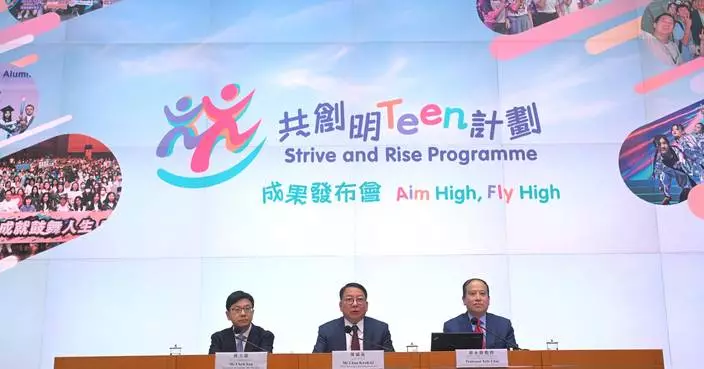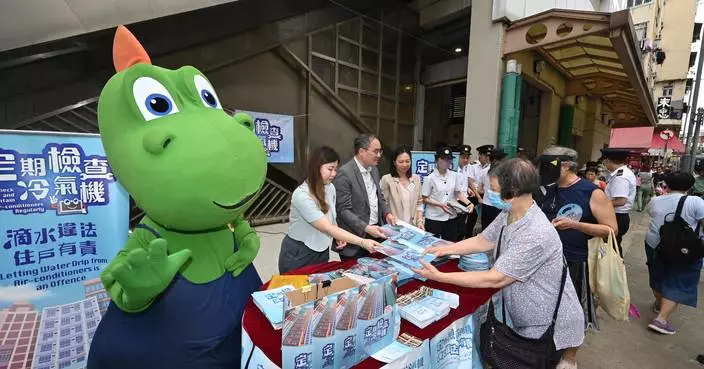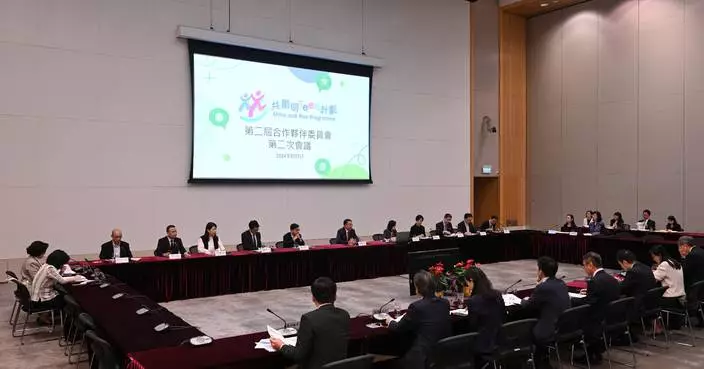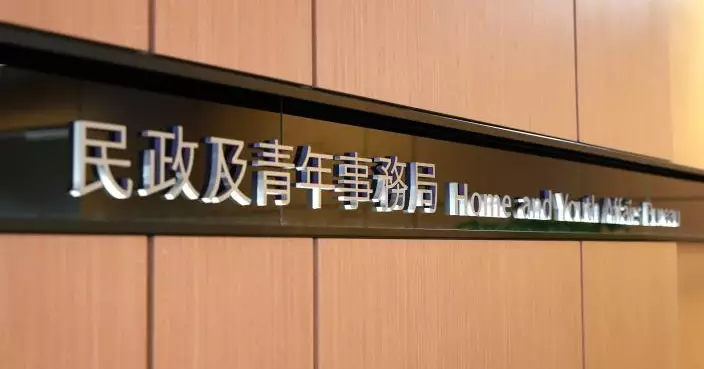Chp launches probe into alarming case of pediatric flu outbreak
The Centre for Health Protection (CHP) of the Department of Health is today (April 22) investigating a case of severe paediatric influenza A infection and reminded the community to heighten vigilance against influenza. The CHP appealed to members of the public to receive seasonal influenza vaccination (SIV) in a timely manner to better protect themselves during the influenza season.
The case involves a 6-year-old girl with good past health. She developed a fever and cough since April 19 and sought medical attention at Union Hospital on April 20. She was taken to the Accident and Emergency Department of Prince of Wales Hospital on April 20 due to worsening of symptoms and was admitted the paediatric intensive care unit of the hospital on the same day. She was subsequently transferred to the intensive care unit of Hong Kong Children's Hospital for treatment on April 20 evening. Her respiratory specimen was positive for influenza A (H1) virus upon laboratory testing. The clinical diagnosis was influenza A infection complicated with encephalopathy. She is now in critical condition.
Initial enquiries by the CHP revealed that the patient had no travel history during the incubation period. Her home contacts are currently asymptomatic.The CHP's investigations are ongoing.
A spokesman for the CHP said, "Influenza can cause serious illnesses in high-risk individuals and even healthy persons. SIV is one of the most effective means to prevent seasonal influenza and its complications, as well as reducing influenza-related hospitalisation and death. SIV is recommended for all persons aged 6 months or above except those with known contraindications. Persons at higher risk of getting influenza and its complications, including the elderly and children, should receive SIV early. As it takes about two weeks to develop antibodies, members of the public are advised to receive SIV early for protection against seasonal influenza. Please see details of the vaccination schemes on theCHP's website."
A person who gets influenza and COVID-19 at the same time may be more seriously ill and would have a higher risk of death. It is important to receive both SIV and COVID-19 vaccination as soon as possible, in particular for children and elderly persons residing in the community or residential care homes. The public should also maintain good personal and environmental hygiene against influenza and other respiratory illnesses, and note the following:
ââThe public may visit the CHP'sinfluenza pageand weeklyCOVID-19 & Flu Expressfor more information.

Source: AI-generated images
High-level meeting with japanese officials: urgent concerns over fukushima's nuclear contaminated water discharge
The Secretary for Environment and Ecology, Mr Tse Chin-wan, met the Parliamentary Vice-Minister for Agriculture, Forestry and Fisheries, Mr Takahashi Mitsuo, and the Consul-General of Japan in Hong Kong, Mr Kenichi Okada, today (May 3) upon request and discussed about the discharge of nuclear-contaminated water in Japan.
Mr Tse reiterated at the meeting that the Hong Kong Special Administrative Region (HKSAR) Government has come to the view that there is currently no guarantee from the Japanese authorities that their purification and dilution system can operate continuously and effectively in the long term, and that the discharge will not pose any potential risks to food safety and marine ecology. Safeguarding food safety and public health in Hong Kong is the responsibility of the HKSAR Government, thus corresponding precautionary measures must be taken. The HKSAR Government will closely monitor developments of the discharge, so as to obtain more monitoring and scientific data in order to further examine the impact of the Fukushima nuclear-contaminated water discharge on food safety, and keep under review relevant counter measures. Should anomalies be detected, the Government does not preclude further tightening the scope of the import ban.
In response to the Japanese Government's earlier decision to discharge nuclear-contaminated water at the Fukushima Nuclear PowerStation into the sea, the Director of Food and Environmental Hygiene issued a Food Safety Order which prohibits all aquatic products, sea salt and seaweeds originating from the 10 metropolis/prefectures, namely Tokyo, Fukushima, Ibaraki, Miyagi, Chiba, Gunma, Tochigi, Niigata, Nagano and Saitama, from being imported into and supplied in Hong Kong.For other aquatic products, sea salt, and unprocessed or processed seaweed from Japan that are not prohibited from being imported into Hong Kong, the Centre for Food Safety of the Food and Environmental Hygiene Department will conduct comprehensive radiological tests to verify that the radiation levels of these products do not exceed the guideline levels before they are allowed to be supplied in the market.
Besides, all vegetables, fruits, milk, milk beverages and dried milk originating from Fukushima are banned from importing into Hong Kong while such foods originating from the four prefectures nearby Fukushima, i.e. Ibaraki, Tochigi, Chiba and Gunma, are allowed to be imported on the condition that they are accompanied with a radiation certificate and an exporter certificate issued by the Japanese authority. Chilled or frozen game, meat and poultry, and poultry eggs originating from the above five prefectures are allowed to be imported on the condition that they are accompanied with a radiation certificate issued by the Japanese authority which shows the radiation levels do not exceed the guideline levels of the Codex Alimentarius Commission.

Source: AI-generated images










